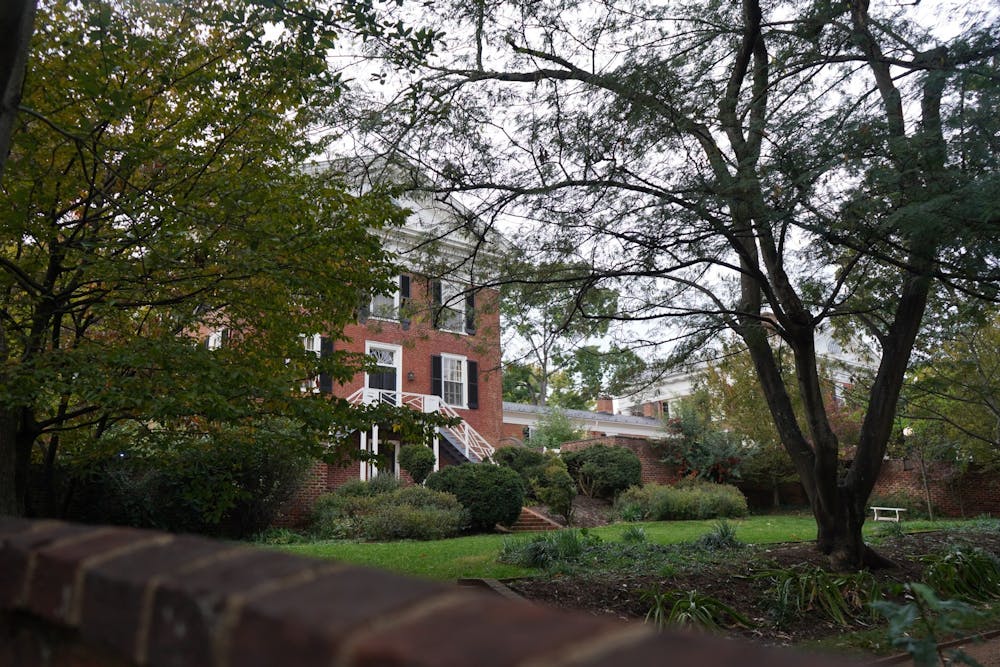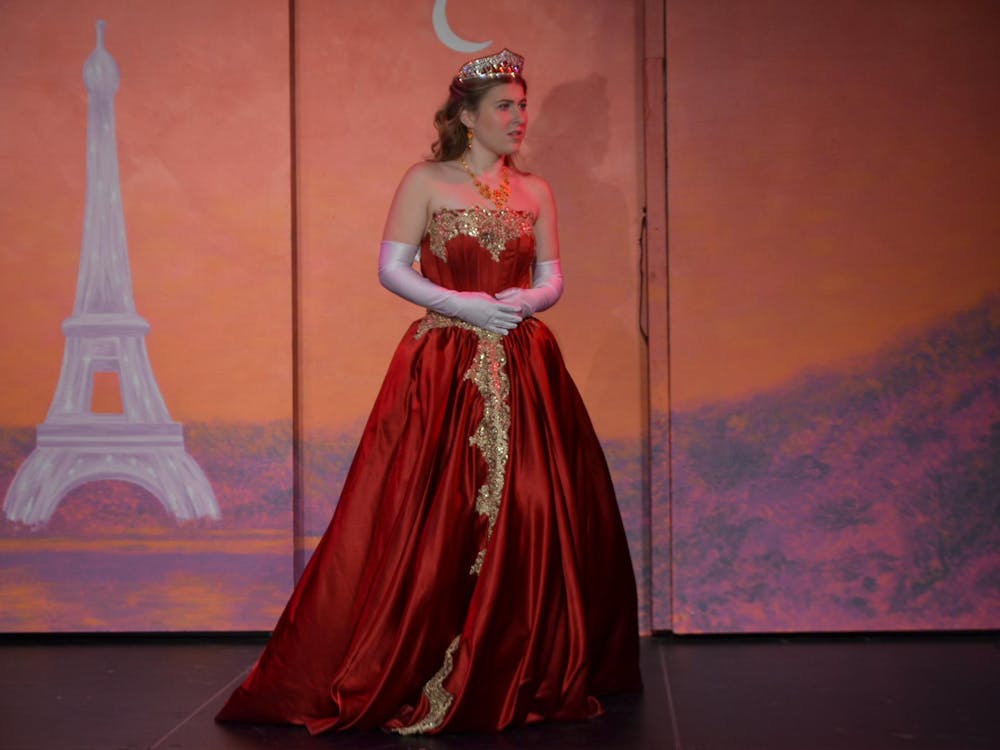“Double, double, toil and trouble…” the University’s student-run theatre organization Shakespeare on the Lawn mounted a powerful production of “Macbeth” in Pavilion Garden I this weekend, bringing one of the Bard’s greatest tragedies to Grounds for a three-afternoon run. Audience members lounged on picnic blankets or folding chairs as the action unfolded against the University Chapel, framed by falling flower petals, twisting tree branches and a slow, golden sunset.
Director and second-year College student Holly Teti called the production “a play about how characters behave in different spaces.”
Teti’s “Macbeth” engaged with space and place in an exploration of “heterotopia” — a concept Teti first encountered in an art history lecture on ancient Egyptian tombs and religious spaces. In the “Macbeth” program, Teti described heterotopias as “spaces that invite or even force us to behave in a specific way.”
Characters engaged with a variety of such spaces in the “Macbeth.” Lady Macbeth rages in her painting studio while maintaining order in her dining room. Spirits reign in the forest, where military generals sought witches to tell their fortunes. Murders bloody both bedrooms and battlefields.
“[We worked to] enhance the production by inserting more heterotopias and by blurring the heterotopias that exist in the text, like the line between the spiritual world that the witches exist in and the human world,” Teti said.
These blurred lines extended to the division between the world onstage and off — with no backstage area or wings, actors prepared for their entrances behind the audience in plain sight, immersing theatergoers in the world of the play.
“Macbeth” featured a string of haunting images, from the first ethereal entrance of the witches to Malcolm's blood-tainted coronation. Witches circle a cauldron in swishing robes of green, purple and mustard yellow. Banquo’s spirit, collar crusted with blood, points a finger at Macbeth in silent accusation. In a tableau to close Act I, everyone except the witches bow to the king on his stolen throne.
As Macbeth, third-year College student Becca Davis delivered heart-wrenching soliloquies with their face twisted in pain. Davis’ tortured physicality expressed the murder-king’s agonizing guilt, and their increasing agitation showed Macbeth’s descent into crippling paranoia.
Third-year College student Sivan Ben-David demonstrated a masterful command of Shakespeare’s language as Lady Macbeth. Ben-David played the ambitious noblewoman with harrowing intensity, calculating every murderous move necessary to make herself Queen of Scotland.
While Davis’ Macbeth tortured himself over murdering Duncan, Ben-David’s Lady Macbeth smirked to herself, shining with the self-satisfaction of a successful schemer. Ben-David also displayed her dramatic chops in Act II, when Lady Macbeth’s own conscience catches up to her.
“Will these hands ne’er be clean?” she screamed, shaking as she punctured holes in her canvas before dissolving into sobs on the floor of her studio.
Other actors also delivered standout performances. Fourth-year McIntire student Ria Kharosekar was particularly chilling as the ghost of Banquo. The three witches — third-year College student Kathleen McNerney, third-year Engineering student Miranda Khoury, and first-year College student Muyang Chen — floated across the garden like woodland Fates, chanting prophecies in eerie unison verse. In a refreshing comedic interlude, third-year College student Zachary Wood staggered across the stage as a drunken Porter — his gleeful refrain of “Knock, knock!” had the audience in stitches.
Scenic design by fourth-year College student Zoe Calderazzi and costuming by second-year College student H.C. Slayton painted a picture of war-torn Scotland using the color palette of the Pavilion itself. The generals’ brown, blue and white costumes picked up the shades of the bricks, sky, and garden gates, complimenting the pink blossoms overhead and green grass underfoot.
Minimalist sets implied Teti’s heterotopias with stunning attention to detail — in her studio, Lady Macbeth rendered the University chapel on her canvas, capturing it from the audience’s exact point of view. Sound design by third-year College student Re Trochlil underscored the action with a textured soundscape of percussion including a cabasa and a Tibetan singing bowl.
One of the most impressive production elements in “Macbeth” was its sword fight sequences, which fight choreographer and fourth-year College student Chris Lin described as “a lot of fun” but “difficult” to coordinate.
“I had to train eight different actors to do four different fights,” Lin said, noting that he designed the fights to be relatively short to focus on their purpose in advancing the story.
Shakespeare on the Lawn’s “Macbeth” served the organization’s mission of bringing “free, live, classical theatre” to the University and Charlottesville community. Only one thing threatened to break the play’s theatrical illusion — the omnipresent background clamor of Alderman Library construction.
CORRECTION: A previous version of this article referred to Sivan Ben-David as a second-year but she is actually a third. The article has been updated to reflect this change.







